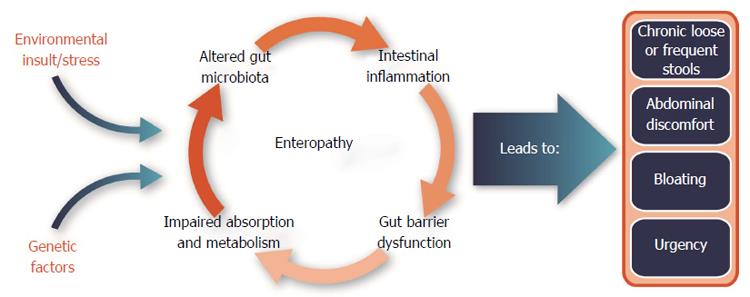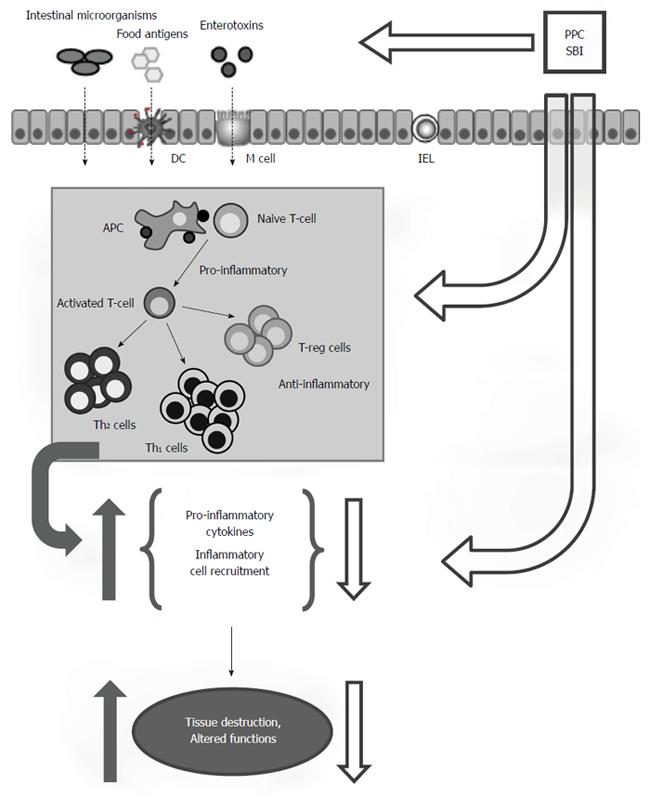Copyright
©2014 Baishideng Publishing Group Inc.
World J Gastroenterol. Sep 7, 2014; 20(33): 11713-11726
Published online Sep 7, 2014. doi: 10.3748/wjg.v20.i33.11713
Published online Sep 7, 2014. doi: 10.3748/wjg.v20.i33.11713
Figure 1 Factors involved in the pathogenesis of enteropathy associated with certain human disease states or conditions (e.
g., diarrhea-predominant irritable bowel syndrome or human immunodeficiency virus infections).
Figure 2 Proposed mode of action for serum-derived bovine immunoglobulin protein isolates to aid management of enteropathy.
Figure 3 Summary of the postulated mode of action for serum-derived immunoglobulin/protein isolates.
Immunoglobulins in SBI support intestinal homeostasis by binding MAMPs (endotoxins, etc.), toxins or other antigens in the lumen of the intestinal tract. Immunoglobulin binding interferes with downstream antigen detection by cell surface receptors on IELs or APCs such as DCs and macrophages that influence T cell activation, cytokine production, and barrier fortification. Additionally, biologically active compounds in immunoglobulin isolates may interact directly with mucosal immune cells in the lamina propria to influence mucosal inflammatory responses and epithelial cells to influence barrier function. SBI: Serum-derived immunoglobulin/protein isolates; MAMP: Microbe-associated molecular patterns; IEL: Intraepithelial lymphocytes; APC: Antigen presenting cells; DC: Dendritic cells; T-reg: Regulator T-lymphocytes; Th1: T helper type 1; Th2: T helper type 2. Reprinted with permission from Moretó et al[48].
- Citation: Petschow BW, Blikslager AT, Weaver EM, Campbell JM, Polo J, Shaw AL, Burnett BP, Klein GL, Rhoads JM. Bovine immunoglobulin protein isolates for the nutritional management of enteropathy. World J Gastroenterol 2014; 20(33): 11713-11726
- URL: https://www.wjgnet.com/1007-9327/full/v20/i33/11713.htm
- DOI: https://dx.doi.org/10.3748/wjg.v20.i33.11713











